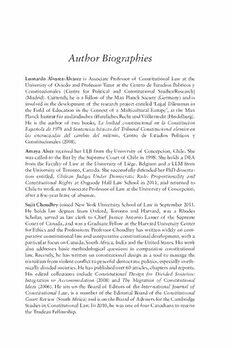
Rights in Divided Societies PDF
269 Pages·2012·1.417 MB·English
Most books are stored in the elastic cloud where traffic is expensive. For this reason, we have a limit on daily download.
Preview Rights in Divided Societies
Description:
This collection examines the role and value of rights in divided and post-conflict societies, approaching the subject from a comparative and theoretical perspective.Societies emerging from violent conflict often opt for a bill of rights as part of a wider package of constitutional reform. Where conflict is fuelled by longstanding ethno-national divisions, these divisions are often addressed through group-differentiated rights. Recent constitutional settlements have highlighted the difficulties in drafting a bill of rights in divided/post-conflict societies, where the aim of promoting unity is frequently in tension with the need to accommodate difference. In such cases, a bill of rights might be a rallying point around which both minorities and the majority can articulate a common vision for a shared society. Conversely, a bill of rights might provide merely another venue in which to play out familiar conflicts, further dividing an already divided society.The central questions that animate the collection are: (1) Can constitutional rights provide a basis for unity and a common ‘human rights culture’ in divided societies? If so, how? (2) To what extent should divided societies opt for a universalistic package of rights protections, or should the rights be tailored to the specific circumstances of a divided society, providing for special group-sensitive protections for minorities? (3) Is a divided society more or less likely to adopt a bill of rights? (4) How does the judiciary figure in the management or resolution of ethno-national conflict? (5) What are the general theoretical and philosophical issues at stake in a rights-based approach to the management or resolution of ethno-national divisions or other conflicts?
See more
The list of books you might like
Most books are stored in the elastic cloud where traffic is expensive. For this reason, we have a limit on daily download.
